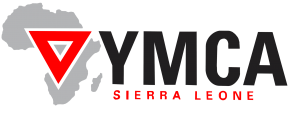DRR POLICY MAKING – REGIONAL CONSULTATIVE MEETING
DATE: 22ND JULY, 2020
Our climate is changing, Icebergs are melting, Sea levels are rising and Disaster risks are increasing, therefore the need for Disaster Risk Reduction (DRR) action is eminent. The SL-YMCA being a development and a youth focus organization that is covering many thrust areas, also decides to develop a Disaster Risk Reduction Policy, with an institutional focus, that will provide a guide on Disaster Risk Reduction for people working in their different thrust areas. On this backdrop, a consultant was hired to develop the Disaster Risk Reduction Policy on behalf of the institution.
The policy development took a consultative approach that is; collecting feedbacks from people in all the regions that SL-YMCA is operating (North – Makeni and Lungi, South – Bo, East – Kenema and West – Freetown). The consultative process started in Kenema on the 13th July 2020 and Ended in Freetown on the 21st July, 2020.
Throughout the regions, participants were divided into 3 specific groups (Teachers, Board members and Institution). These groups were to work on three or four of the 11 key pillars of the SL-YMCA’S programmes, which was termed by the Consultant as Policy Focal Areas.
Each group was to develop, for the Focal Areas, policy objective(s) (priority policy changes they might want to introduce or see in the DRR Policy), Activities for the developed policy objective(s) (how the developed policy objectives can be met), suggest whom they think should be involved in the implementation of those activities, suggest possible barriers in the implementation of those activities and suggest timelines for the implementation of those activities.
However, for Freetown, the grouping composition was slightly different, as we invited people from outside the YMCA’s domain to get a wider view of what they think should be included in the policy. But the selection was done based on how relevant those institutions are when it comes to matters that have to do with Disaster Risk Management. The outside institutions that were invited are; UNDP, Sierra Leone Red Cross, Office on National Security and Freetown City Council. The whole consultative meeting ended very well. 98% of our target group were present for the program. The participants welcomed the idea of the policy formation, and were extremely happy to participate in the whole process and being part of the policy formation process.
Written By:
Pious Mannah
